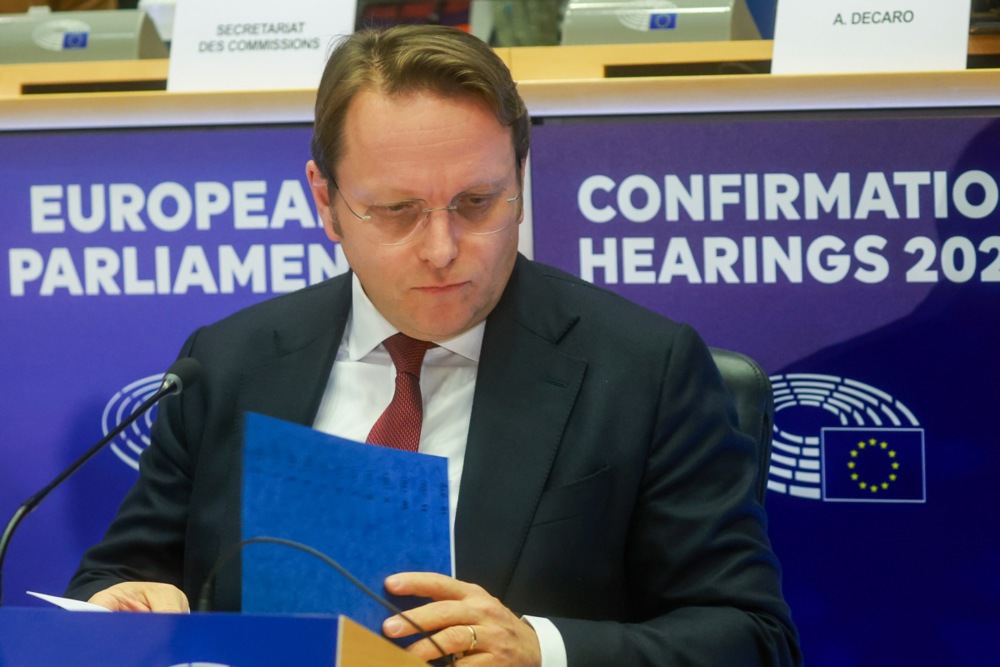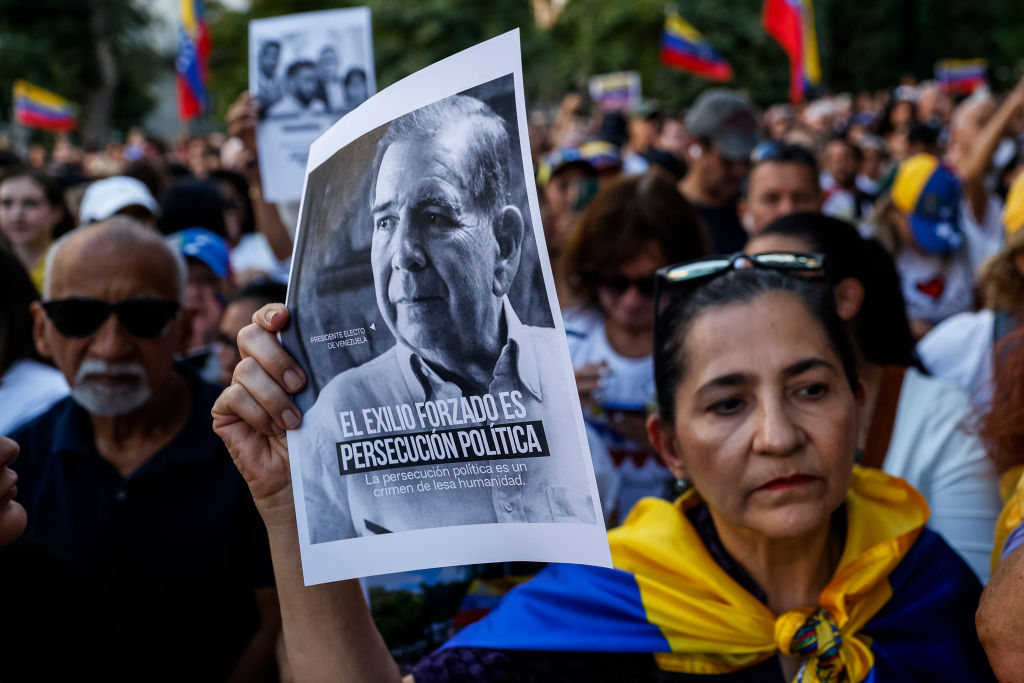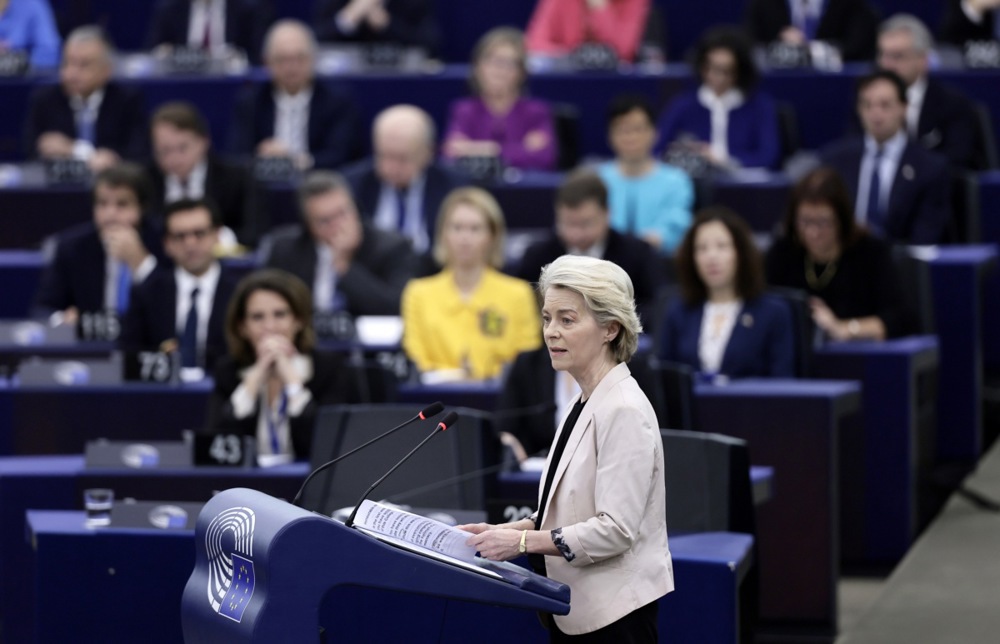Nine Slovenian and Croatian Socialist MEPs have called for the cancellation of an ongoing exhibition in the European Parliament, commemorating the Foibe Massacres.
According to the MEPs, who wrote a letter to EP President Roberta Metsola urging her to cancel an exhibition, the content was controversial and misleading.
The commemoration exhibition was organised by the right-wing Fratelli d’Italia (FdI) at the EP in Strasbourg, bringing attention to the mass killings and deportations organised by far-left Yugoslav Partisans during and immediately after the Second World War.
Around 300,000 people were forced to leave their homes in the region.
Partisans targeted ethnic Italians and anti-Communists, often in retribution for the crimes committed by Italian fascists.
In their longwinded letter, the Socialist MEPs said they had concerns about the exhibition, which was inaugurated on February 10.
“Unfortunately, our concerns have not only been confirmed, but the content of the exhibition is much more pressing than it was initially possible to conclude when it was announced,” they said.
They added that next to MEPs, the professional public – historians – also were indignant.
The MEPs claimed: “It is quite clear that there is a complete discrepancy between the facts and the information stated on the exhibited billboards.
“It is an untrue and extremely harmful presentation of the half-past history of Slovenia, Italy and Croatia at a time when generations throughout Europe suffered immense pain, especially because of the fascist regime,” they said.
They went on to say that the region saw the first resistance against fascism arise in the early 1920s.
“The National Liberation Resistance and the Partisan Army of Yugoslavia are still considered the most successful European resistance movement against fascist tendencies.
“It is therefore very clear that the foundation of today’s free and sovereign Europe is the value of anti-fascism,” they said.
In their disagreement with the content of the exhibition, the Socialist MEPs added: “It is utterly outrageous that a minority of individuals driven by intentions of division — and evidently also the incitement of hatred — are allowed to showcase manipulations within the central institution of the European Union: the Parliament.
“This is both controversial and extremely harmful. The consequences of such actions do not simply ‘fade away’ after their conclusion—in this specific case, an exhibition on the Foibe massacres—but rather generate new attempts to undermine the fundamental principles of the EU. ”
The MEPs claimed the Italians wanted to subvert “the principles of the European community — a community whose very foundation is rooted in the victory over Nazi-fascism”.
They added a letter from Slovenian historian Dr Nevenka Troha, niece of the well-known Communist politician Lidija Šentjurc, who repeated the claims.
The letter was signed by Slovenian and Croatian Socialists, Greens and Liberals.
In reaction, Carlo Fidanza, head of the Fratelli d’Italia-ECR delegation said: “The request by Slovenian and Croatian left-wing groups to remove the exhibition commemorating the Foibe massacres and the Italian exodus from Istria, Rijeka, and Dalmatia is a dark moment for the European Parliament.”
He added that it was a “sad confirmation that some still refuse to acknowledge historical truth and honour the victims of Tito’s atrocities, even 80 years later”.
“During the inauguration of the exhibition, organised by Stefano Cavedagna and the Fratelli d’Italia delegation with support from Anvgd and Comitato 10 Febbraio, all participants emphasised the importance of reconciliation.
“The presence of Slovenian colleagues from the EPP, whose previous government helped uncover hundreds of foibe in Slovenia where Tito’s regime killed thousands, was particularly significant. The foibe were an Italian and European tragedy, and a few pro-Tito nostalgics will not erase it from memory again,” Fidanza said.
Italian President Sergio Mattarella spoke about what he called the tragic silence that could be defined as “a concealment of history” during a commemoration on February 10, Italian public outlet Ansa reported.
He labelled it a dark page in history and went on to condemn Marshal Tito’s Communist crimes but also those of fascism first and then of Nazism.
“In the areas of the eastern border, after the fascist oppression, responsible for a harshly segregationist policy towards the Slavic populations, and the barbaric Nazi occupation, the Communist dictatorship of Tito was established, inaugurating a ruthless season of violence against the Italians residing in those areas,” Mattarella said.
“What happened to the people of Rijeka, the Istrians and the Dalmatians” was a story “that has defeated the conspiracy of silence and that no attempt at denial or justification can ever hide or erase”.
Al tempo di questa foto, un triste tempo,
Egea, la bimba con la valigia con su scritto “esule giuliana” che commosse il mondo in quanto simbolo dell’esodo istriano del Dopoguerra e delle #foibe, aveva da pochissimo perso il papà massacrato dai titini.Oggi la sua nomina a… pic.twitter.com/AG0PKugCuT
— Alessia Ambrosi ?? (@AleAmbrosiTW) September 23, 2024
The Italian President went on to highlight that eventually, Tito turned “on the anti-fascists, the comrades in ideology: In the face of the proposal of the new Yugoslav regime of sovereignty over the Julian territories, being Italian became an obstacle, if not a fault.
“The memory of the victims must be preserved and honoured,” he said, adding: “Naturally – after so many decades and in profoundly changed historical and political conditions, it would lose its authentic value if it were subservient to the resumption of divisions or rancour.”
On social media, Deputy Italian PM Matteo Salvini said: “Even today, some people try to rewrite history, through shameful outrages and acts of vandalism, but the memory of those innocents cannot be erased.
“Memory is a duty, truth is a right. Today and always, let us honor our fellow countrymen victims of one of the greatest tragedies of the 20th century, because without memory there is no justice,” he said.
Foreign Minister Antonio Tajani commented: “Memory does not mean recrimination or revanchism [a policy of seeking to retaliate, especially to recover lost territory].”





